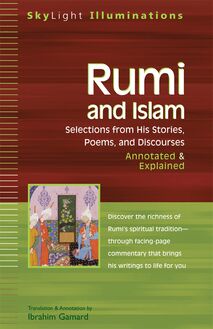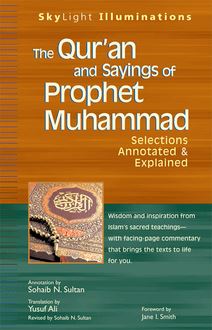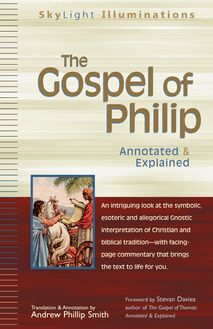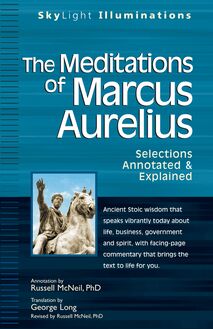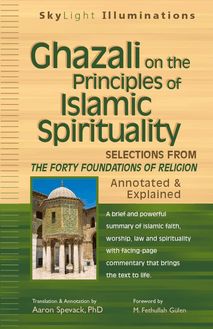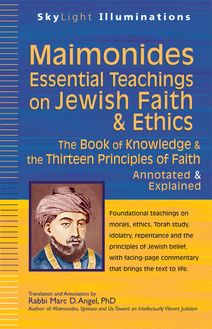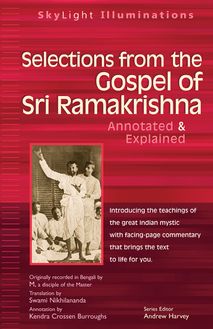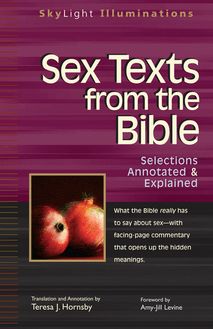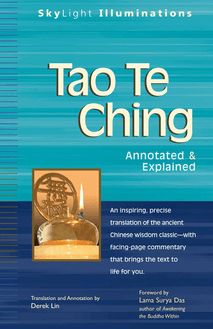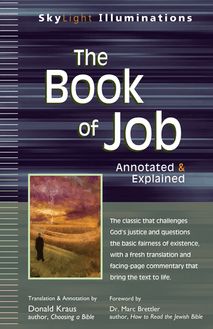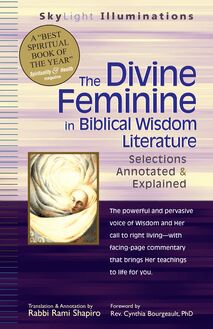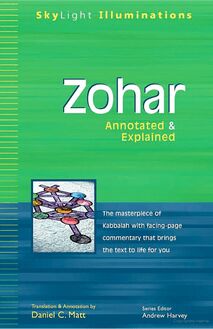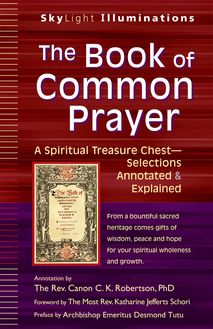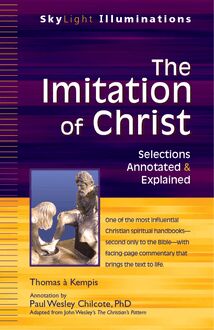-
 Univers
Univers
-
 Ebooks
Ebooks
-
 Livres audio
Livres audio
-
 Presse
Presse
-
 Podcasts
Podcasts
-
 BD
BD
-
 Documents
Documents
-
- Cours
- Révisions
- Ressources pédagogiques
- Sciences de l’éducation
- Manuels scolaires
- Langues
- Travaux de classe
- Annales de BEP
- Etudes supérieures
- Maternelle et primaire
- Fiches de lecture
- Orientation scolaire
- Méthodologie
- Corrigés de devoir
- Annales d’examens et concours
- Annales du bac
- Annales du brevet
- Rapports de stage
La lecture à portée de main
Vous pourrez modifier la taille du texte de cet ouvrage
Découvre YouScribe en t'inscrivant gratuitement
Je m'inscrisDécouvre YouScribe en t'inscrivant gratuitement
Je m'inscrisEn savoir plus
Vous pourrez modifier la taille du texte de cet ouvrage
En savoir plus

Description
The poetical masterpiece that confronts the inexplicable mystery of good and evil can be a companion on your own spiritual journey.
The book of Job, celebrated as a classic of world literature and one of the glories of the Bible, can often be puzzling and frustrating: puzzling for its dialogue form and off-putting because of the many questions it leaves unanswered. The book was written in a world very different from our own, and yet the fundamental questions it raises are still ones we grapple with today: Is it worthwhile to act for the best? Does life have a meaning beyond itself? Why do the righteous suffer and the guilty prosper?
In this accessible guide to a spiritual masterpiece, Donald Kraus, the editor of the Oxford University Press Study Bible program, clarifies what Job is, helps overcome difficulties in the text, and suggests what Job may mean for us today. Kraus's fresh translation captures some of the finest poetry in the Hebrew Bible and uncovers the original author’s intent in a way that is accessible for modern readers and spiritual seekers.
This inviting SkyLight Illuminations edition, with probing facing-page commentary, explores Job’s daring challenges to God’s goodness, asks questions about the basic fairness of existence, and offers compelling descriptions of the glories of the created world and the bitter sorrows of human life.
Foreword vii
Introduction xi
The Prose Framework: Opening 1
Chapter 1 3
Chapter 2 9
Job's Curse 13
Chapter 3 15
The First Dialogue Cycle 19
Chapter 4 21
Chapter 5 25
Chapter 6 29
Chapter 7 35
Chapter 8 39
Chapter 9 43
Chapter 10 49
Chapter 11 53
Chapter 12 57
Chapter 13 61
Chapter 14 65
The Second Dialogue Cycle 69
Chapter 15 71
Chapter 16 77
Chapter 17 81
Chapter 18 85
Chapter 19 89
Chapter 20 95
Chapter 21 99
The Third Dialogue Cycle 105
Chapter 22 107
Chapter 23 111
Chapter 24 115
Chapter 25 119
Chapter 26 123
Chapter 27 125
Chapter 28 129
Job's Final Speeches 133
Chapter 29 135
Chapter 30 139
Chapter 31 145
The Elihu Explosion 151
Chapter 32 153
Chapter 33 157
Chapter 34 163
Chapter 35 169
Chapter 36 173
Chapter 37 179
The Answer of God from the Storm 183
Chapter 38 185
Chapter 39 191
Chapter 40 197
Chapter 41 201
Job's Final Reply 207
Chapter 42 (verses 1–6) 209
The Prose Framework: Closing 211
Chapter 42 (verses 7–17) 213
Acknowledgments 214
Suggestions for Further Reading 215
Sujets
Informations
| Publié par | Turner Publishing Company |
| Date de parution | 01 août 2012 |
| Nombre de lectures | 0 |
| EAN13 | 9781594734717 |
| Langue | English |
Informations légales : prix de location à la page 0,0850€. Cette information est donnée uniquement à titre indicatif conformément à la législation en vigueur.
Extrait
Contents
Foreword
Introduction
The Prose Framework: Opening
Chapter 1
Annotations
Chapter 2
Annotations
Job s Curse
Chapter 3
Annotations
The First Dialogue Cycle
Chapter 4
Annotations
Chapter 5
Annotations
Chapter 6
Annotations
Chapter 7
Annotations
Chapter 8
Annotations
Chapter 9
Annotations
Chapter 10
Annotations
Chapter 11
Annotations
Chapter 12
Annotations
Chapter 13
Annotations
Chapter 14
Annotations
The Second Dialogue Cycle
Chapter 15
Annotations
Chapter 16
Annotations
Chapter 17
Annotations
Chapter 18
Annotations
Chapter 19
Annotations
Chapter 20
Annotations
Chapter 21
Annotations
The Third Dialogue Cycle
Chapter 22
Annotations
Chapter 23
Annotations
Chapter 24
Annotations
Chapter 25
Annotations
Chapter 26
Annotations
Chapter 27
Annotations
Chapter 28
Annotations
Job s Final Speeches
Chapter 29
Annotations
Chapter 30
Annotations
Chapter 31
Annotations
The Elihu Explosion
Chapter 32
Annotations
Chapter 33
Annotations
Chapter 34
Annotations
Chapter 35
Annotations
Chapter 36
Annotations
Chapter 37
Annotations
The Answer of God from the Storm
Chapter 38
Annotations
Chapter 39
Annotations
Chapter 40
Annotations
Chapter 41
Annotations
Job s Final Reply
Chapter 42 (verses 1-6)
Annotations
The Prose Framework: Closing
Chapter 42 (verses 7-17)
Annotations
Acknowledgments
Suggestions for Further Reading
About the Authors
About SkyLight Illuminations
Copyright
Also Available
About SkyLight Paths
About Jewish Lights
Send Us Your Feedback
Foreword
Job s name in Hebrew may be aptly translated as Where is the (heavenly) father? and no other biblical book deals so powerfully with the problem of the suffering of the righteous individual in a theistic world. The majority of the book, composed of about thirty-nine of the most difficult but beautiful chapters of Hebrew poetry of the Bible, is structured in dialogue form: dialogues between Job and his three friends; responses to Job by the mysterious Elihu; and two concluding dialogues between Job and God, where, quite surprisingly, Job has the last word. Yet these are not dialogues in the sense that we are familiar with; Job does not respond to the content of his friends speeches, nor do God and Job address each other s claims in a straightforward way. Perhaps the poet of Job means to suggest that there is no simple, straightforward answer to the profound questions that the book raises.
The majestic poetry is surrounded by a two-chapter prose introduction and a brief, eleven-verse conclusion (42:7-17). The prose presents a simple but disturbing theology: All of Job s tribulations are the result of God talking too much. Twice God says to the Provoker (or Adversary; Hebrew ha-satan ), a member of the divine council, Have you laid heart to my servant Job? He has no equal in the world, downright upright, holding me in awe, turning from evil (1:8, 2:3). This conversation provokes the Adversary, who asks and gains permission to harm Job s property and family, and eventually Job himself. In the final chapter Job is restored; his property is doubled, and a new set of children, including three most beautiful daughters, are born to him. Indeed, a very loose translation of the book s last two verses would be: And Job lived happily ever after. Indeed. This prose suggests that there may be blips in the system of divine retribution, but the person who is patient will ultimately be rewarded properly in this world. These blips are significant-the theology here is not that the righteous always prosper and the wicked are always punished, but that this is ultimately the case. And the exceptions have reasons: God s heavenly court is run better than its human counterpart, but is not run perfectly.
The book of Job is considered, like Proverbs and Ecclesiastes, a wisdom book, the product of a group of ancient Israelite sages. Yet the world goes awry when God does not listen to wisdom advice such as Proverbs 17:28, Even fools who keep silent are considered wise; when they close their lips, they are deemed intelligent. After all, the text suggests that had God not engaged the Provoker, showing off how righteous God s servant Job was, none of these catastrophes would have befallen him.
The poetical center will not have any of this simple argument. Job and his friends present certain main arguments. Job insists that the righteous do suffer and that God abuses God s great power. The friends argue the opposite-only the wicked suffer, and God uses the divine power beneficently. (It is quite striking that no one in the book argues that God is not powerful and in control of the world.) After three cycles of speeches, where they each adduce their personal experiences and perceptions, they are all worn out, and we expect God to respond to Job s insistent demand: Let the Mighty One answer! Let God issue the indictment, this opposing counsel! (31:35). But instead we get Elihu.
Elihu presents significant interpretive problems, and many modern biblical scholars excise his speeches, claiming they are secondary. He can t shut up, is very wordy, and presents himself as full of gas: For I am full of words; the wind within me distresses me (32:18, author s translation). To make matters worse, the following speeches of God from the storm pick up on the vocabulary and ideas that Elihu expresses. Does Elihu thus foreshadow God or undermine God s speeches?
The language of the divine speeches is exquisite, and much more clear than the very difficult poetry elsewhere in the book. They are among the most beautiful in the Bible, but they never directly address Job s situation. The first, in chapters 38-39, is composed of tens of rhetorical questions that focus on God s power. They thus address a shared premise of Job and his friends-that God is powerful-but do not clearly note whether this power is always used for good or not, the issue that Job and his friends debated. The second speech (40:6-41:26) is even more puzzling-its main focus is two creatures: Behemoth, a mythologized hippopotamus, and Leviathan, a mythologized crocodile. How do they relate to the main themes of the book? Does God indeed answer Job s questions through these questions and beasts-and if so, what does this answer mean?-or is God merely interested in bullying Job into submission? Scholars are deeply divided over these issues.
Perhaps Job s final words may provide some insight into the book and its ultimate meaning. But here, too, we run into an interpretive difficulty. Is Job capitulating, as suggested in most translations, including the NRSV s: Therefore I despise myself, and repent in dust and ashes (42:6), or has, for example, contemporary scholar and translator Stephen Mitchell properly captured the nuance of the Hebrew: Therefore I will be quiet, comforted that I am dust ?
Perhaps the material in Job has been organized to suggest that there is no easy, obvious answer to life s most difficult questions, and this is what has made Job such a popular book. Professional Bible scholars and others, such as the ancient Greek work The Testament of Job, William Blake in his remarkable drawings, and Archibald MacLeish in his play JB, have attempted to offer compelling interpretations. No one has yet succeeded, but the book, through its engaging style and important message, continues to help generation after generation address the simple question asked in Jeremiah 12:1, Why does the way of the guilty prosper? Job also shows that even though recent times may be the first to have evoked very large-scale human killing, we must remember the life of every single human individual, for that is the level on which Job offers its powerful, though ambiguous, message.
Dr. Marc Brettler, Brandeis University
Introduction
The book of Job, a theological and spiritual masterpiece as well as a classic of world literature, is a poetical expression of the human effort to understand why we suffer. Job, a righteous and innocent man, becomes the victim of a plot between God and a heavenly being who tests human integrity-a plot that, as it develops, becomes little more than a cruel joke. As a result, Job loses everything he has, even his children, and finally his health; he thereby becomes an exemplar of undeserved suffering. Throughout most of the book he sits despairing among the ashes of his former life, visited by no one but his comforters, who only make things worse by trying to persuade him that his misfortune must make sense. That is why the book of Job is so compelling in our own day. More than any other biblical text, Job wrestles with the difficulties of the human condition, the inexplicable nature of the good or evil that can befall anyone, and the inevitable question, Why?
After a brief, even perfunctory, opening to set the scene and create the situation, the unknown poet who created this literary classic unleashes the power of expressive language to give shape to humanity s deepest sorrows. In chapter upon chapter, with explosive imagery, dismissing the feeble, petulant, moralizing arguments from his friends, Job curses his conception and birth, his suffering, his friends for blaming him for his sorrow-he demands answers from them and, ultimately, justice from God. He describes, and perhaps mourns, the difficulty of finding wisdom in the world we know. Finally, except for a long interruption from the character Elihu (which may have been added later by someone other than the original author), Job, by the power of his speech and his unan
-
 Univers
Univers
-
 Ebooks
Ebooks
-
 Livres audio
Livres audio
-
 Presse
Presse
-
 Podcasts
Podcasts
-
 BD
BD
-
 Documents
Documents
-
Jeunesse
-
Littérature
-
Ressources professionnelles
-
Santé et bien-être
-
Savoirs
-
Education
-
Loisirs et hobbies
-
Art, musique et cinéma
-
Actualité et débat de société
-
Jeunesse
-
Littérature
-
Ressources professionnelles
-
Santé et bien-être
-
Savoirs
-
Education
-
Loisirs et hobbies
-
Art, musique et cinéma
-
Actualité et débat de société
-
Actualités
-
Lifestyle
-
Presse jeunesse
-
Presse professionnelle
-
Pratique
-
Presse sportive
-
Presse internationale
-
Culture & Médias
-
Action et Aventures
-
Science-fiction et Fantasy
-
Société
-
Jeunesse
-
Littérature
-
Ressources professionnelles
-
Santé et bien-être
-
Savoirs
-
Education
-
Loisirs et hobbies
-
Art, musique et cinéma
-
Actualité et débat de société
- Cours
- Révisions
- Ressources pédagogiques
- Sciences de l’éducation
- Manuels scolaires
- Langues
- Travaux de classe
- Annales de BEP
- Etudes supérieures
- Maternelle et primaire
- Fiches de lecture
- Orientation scolaire
- Méthodologie
- Corrigés de devoir
- Annales d’examens et concours
- Annales du bac
- Annales du brevet
- Rapports de stage
